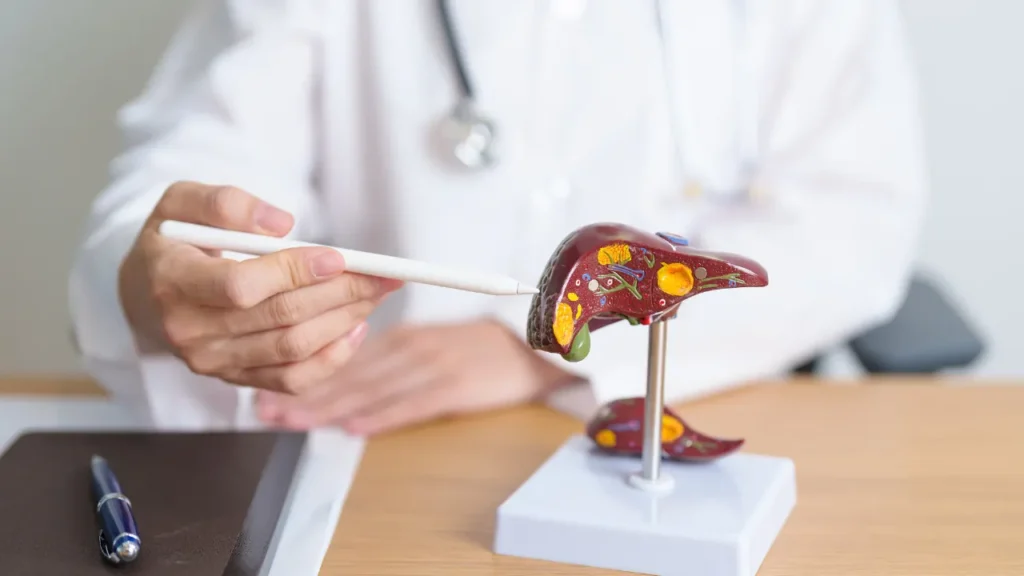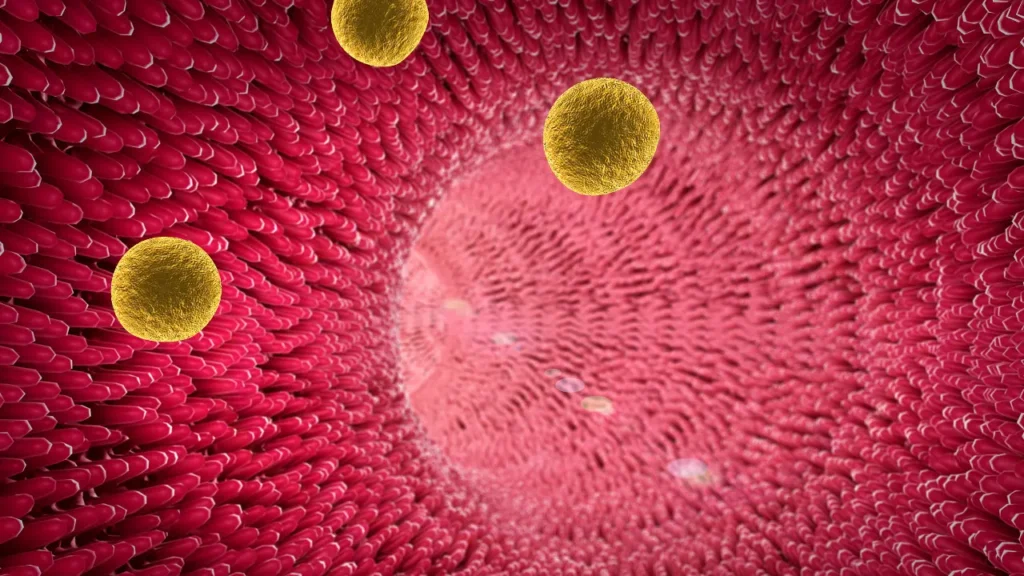Red Bush Tea, often known as Rooibos (Aspalathus linearis), is a South African herbal tea that originated in the Cederberg region. Red Bush Tea is unlike typical teas manufactured from Camellia sinensis, it is made from the leaves of the Aspalathus linearis bush which is a type of legume. This tea has gained popularity not just for its unique flavor, but also for its numerous health advantages. This article looks into the technical specifics of Red Bush Tea’s chemistry, physiological effects, recommended dosage, potential negative effects, and interactions with other substances.
You May Also Like:
Dr Emil Nutrition Lion’s Mane Reviewed: A Leading Nootropic Mushroom Product
Red Bush Tea: Benefits, Dosage, Side Effects, Drug Interactions, and Other Important Information is an original (NootropicsPlanet) article.
Nature of Red Bush Tea
Red Bush Tea, made from the Aspalathus linearis plant, is a herbal beverage that has been consumed for generations in South Africa. It is valued not just for its refreshing flavor, but also for its medical benefits. The leaves of Aspalathus linearis are collected, crushed, fermented, and dried to create a reddish-brown infusion known as Rooibos or Red Bush Tea.
This process improves the flavor of the tea while also releasing the important oils and antioxidants that contribute to its health benefits. This tea is unique because it is naturally caffeine-free and contains fewer tannins than black or green teas, making it a good choice for caffeine-sensitive people or those looking for a softer beverage option.
Health Benefits of Red Bush Tea
The health benefits of Red Bush Tea are extensive and supported by various studies, which highlight its potential both as a preventive and therapeutic beverage:
- Antioxidant Properties: Red Bush Tea is rich in antioxidants such as aspalathin and nothofagin, which help protect cells from damage by free radicals. These antioxidants are significant for maintaining general health and are particularly effective in promoting skin health by reducing the impact of oxidative stress, a key factor in aging and chronic diseases.
- Heart Health: The flavonoids found in Red Bush Tea have been linked to reducing the risk of heart diseases. They do this by improving heart health markers such as reducing LDL cholesterol levels and increasing HDL cholesterol. Additionally, the antispasmodic properties of the flavonoids help in lowering blood pressure and enhancing circulation, further supporting cardiovascular health.
- Diabetes Management: Aspalathin is a rare antioxidant found in Red Bush Tea. It plays a role in balancing blood sugar and improving insulin resistance. This is particularly beneficial for individuals managing type 2 diabetes, as it can help stabilize glucose levels in the bloodstream.
- Digestive Health: The tea is known for its antispasmodic properties, which can soothe the digestive system and relieve symptoms of gastrointestinal discomfort such as cramps and abdominal pain. This makes Red Bush Tea a favored choice for natural digestion aid.
- Bone and Teeth Health: Red Bush Tea contains trace minerals such as calcium, manganese, and fluoride, which are essential for the development and maintenance of strong bones and teeth. Regular consumption can contribute to the prevention of conditions such as osteoporosis and dental decay.
- Cancer Prevention: Although research is still in preliminary stages, some studies suggest that the antioxidants in Red Bush Tea, particularly quercetin and luteolin, may have cancer-fighting properties. These antioxidants can help prevent the mutation of cells and reduce cancer cell growth, especially for skin, breast, and prostate cancer.
- Sleep Improvements: Being naturally free from caffeine, Red Bush Tea is an excellent beverage choice before bedtime. It can help improve sleep quality without the risk of insomnia or disturbances commonly associated with caffeine-laden drinks.
Red Bush Tea offers a multitude of health benefits, from antioxidant protection to support for heart and diabetic health, making it a valuable addition to one’s diet for those seeking natural ways to enhance well-being and prevent chronic conditions.

Chemistry of Red Bush Tea
Red Bush Tea’s distinct chemical makeup sets it apart from other teas. Red Bush Tea has a wide variety of polyphenols, including aspalathin and nothofagin, as well as a distinct set of flavonoids such as quercetin, luteolin, and chrysoeriol. Aspalathin, in particular, is unique to this plant and is well-known for its powerful antioxidant capabilities. These chemicals are essential for their health-promoting properties.
Furthermore, the tea includes small alkaloids and phenolic acids, which add to its total antioxidant activity. Importantly, Red Bush Tea is naturally caffeine-free, which is beneficial for those who are sensitive to stimulants. Its low tannin content, unlike black or green tea, allows for easier absorption of minerals and provides a smoother taste without the bitterness often associated with high-tannin beverages.
Physiological Mechanism of Action of Red Bush Tea
The physiological effects of Red Bush Tea on the body and brain are mostly due to its high antioxidant and polyphenol content. When eaten, these antioxidants function systemically to lower oxidative stress in the body, which is a major contributing cause to aging and many chronic diseases. Antioxidants can specifically pass the blood-brain barrier, which is a selective barrier that protects the brain from potentially dangerous compounds in the bloodstream. Once in the brain, these antioxidants may assist in reducing the effects of oxidative stress on neurons, hence enhancing neuronal health and function.
Flavonoids with anti-inflammatory qualities, such as quercetin and luteolin, play an important role in modulating inflammatory processes inside the brain, which can lead to neurodegeneration. These flavonoids reduce inflammation, which supports neuroprotective benefits and may enhance neuroplasticity—the brain’s ability to establish and reorganize synaptic connections in response to learning and memory. Furthermore, the unique effect of aspalathin in controlling glucose metabolism aids in blood sugar control. This is especially critical for brain function because glucose serves as the brain’s principal energy source. Stable blood glucose levels can boost mental clarity, focus, and cognitive function.
Together, these actions not only promote overall health but also directly contribute to cognitive benefits; they also make Red Bush Tea an excellent choice of supplement for mental alertness and brain health. The lack of caffeine guarantees that these advantages can be enjoyed without the negative side effects associated with stimulant-based cognitive enhancers, providing a long-term and moderate alternative for cognitive assistance.

Optimal Dosage of Red Bush Tea
The appropriate dose of Red Bush Tea for cognitive enhancement is difficult to determine because the concentration of active components varies between batches of tea. Generally, 1-2 cups of Red Bush Tea per day are regarded safe and sufficient to reap its health advantages. For therapeutic purposes, particularly to improve cognition, higher doses may be advantageous but as a user, you must be aware of the potential side effects that come with consuming higher doses of Red Bush Tea.
Side Effects of Red Bush Tea
Red Bush Tea is typically considered safe and well-tolerated by most people. Unlike many traditional nootropic supplements, it is caffeine-free, avoiding the frequent adverse effects of caffeine usage such as jitteriness, elevated heart rate, and sleep disruptions. However, due to its powerful bioactive components, excessive use of Red Bush Tea may result in hepatotoxicity or liver damage. Therefore, moderation is needed.
Potential Substance Interactions of Red Bush Tea
Red Bush Tea is generally safe for most individuals, although it may interact with some drugs. For example, it has been demonstrated to influence the metabolism of medications metabolized by specific liver enzymes. For instance, the efficacy of antiretrovirals may diminish as a result of Red Bush Tea interactions. Furthermore, because of its influence on blood sugar levels, Red Bush Tea may interact with diabetes drugs, potentially increasing their effectiveness and leading to hypoglycemia.

Best Responsible Use of Red Bush Tea
Individuals interested in utilizing Red Bush Tea as a nootropic to improve cognitive performance should examine both the benefits and the hazards. Regular use of 1-2 cups per day can provide cognitive benefits with minimal danger. However, consultation with a healthcare provider is recommended, especially if you have pre-existing health concerns or are using drugs.
Red Bush Tea:
Conclusion
If you are a tea lover but would love to enjoy caffeine-free tea, you can look into Red Bush Tea. Originating from South Africa, this tea is naturally free of caffeine and is also believed to contribute to various health benefits. Like any other tea, Red Bush Tea has strong antioxidant properties and it can also help in digestive health and controlling blood sugar levels. This tea contains tons of flavonoids that can reduce body LDL cholesterol which increases HDL cholesterol.
Additionally, since it does not contain any caffeine, it would not disturb your sleep even if you drink it before bedtime. On the contrary, it can help improve your sleep quality. However, since the tea may interact with diabetes drugs, diabetes patients should not take their medicine along with the tea. If you are planning to enjoy the tea along with its health benefits, it is strongly advised that you consult your doctor first.

References:
- Afrifa, D., Engelbrecht, L., Eijnde, B. O., & Terblanche, E. (2023). Health benefits of Rooibos tea in humans (Aspalathus linearis) – a scoping review. Journal of Public Health in Africa.
- Canda, B., Oguntibeju, O. O., & Marnewick, J. L. (2014). Effects of Consumption of Rooibos (Aspalathus linearis) and a Rooibos-Derived Commercial Supplement on Hepatic Tissue Injury bytert-Butyl Hydroperoxide in Wistar Rats. Retrieved from: Oxidative Medicine and Cellular Longevity, 2014, 1–9.
- Abdul, N. S., & Marnewick, J. L. (2021). Rooibos, a supportive role to play during the COVID-19 pandemic? Retrieved from: Journal of Functional Foods, 86, 104684.
Important Note: The information contained in this article is for general informational purposes only, and should not be construed as health or medical advice, nor is it intended to diagnose, prevent, treat, or cure any disease or health condition. Before embarking on any diet, fitness regimen, or program of nutritional supplementation, it is advisable to consult your healthcare professional in order to determine its safety and probable efficacy in terms of your individual state of health.
Regarding Nutritional Supplements Or Other Non-Prescription Health Products: If any nutritional supplements or other non-prescription health products are mentioned in the foregoing article, any claims or statements made about them have not been evaluated by the U.S. Food and Drug Administration, and such nutritional supplements or other health products are not intended to diagnose, treat, cure, or prevent any disease.


